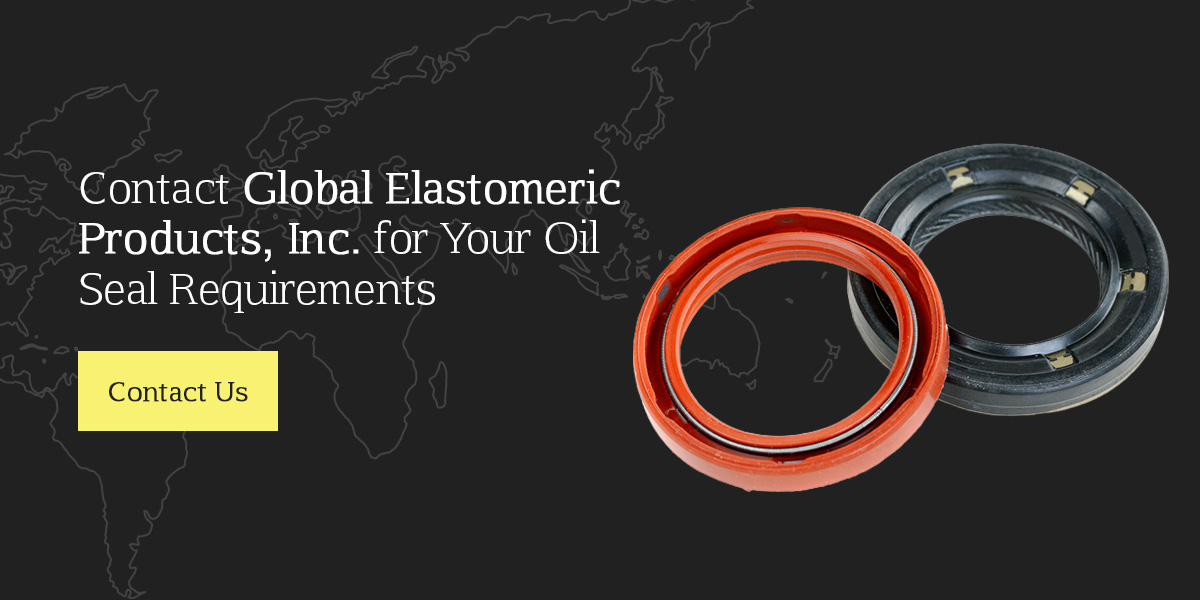A Guide to Oil Seals
Oil seals are essential for keeping lubricant and other necessary substances inside rotary shaft equipment and preventing debris from getting inside. These invaluable devices, also called rotary shaft seals, shaft seals, lips seals or elastomeric seals, protect the bearings of rotating shafts. In simple terms, oil seals form a protective barrier that separates the inside from the outside.
In This Article
- How Do Oil Seals Work?
- How Is an Oil Well Sealed?
- How Long Do Oil Seals Last?
- How Does an Oil Seal Prevent Leakage?
- Contact Global Elastomeric Products, Inc. for Your Oil Seal Requirements
How Do Oil Seals Work?
Oil seals work by forming a secure plug on shafts. All oil seals consist of three basic components:
- Interior sealing element: This flexible lip is set firmly against rotating parts to prevent substances inside a shaft from leaking. It usually requires some form of lubricant to avoid overheating.
- Sturdy circular metal casing: The casing is mounted onto the housing to hold the seal in place.
- Garter spring: The spring maintains pressure to hold the sealing lip against the shaft.
How Is an Oil Well Sealed?
When choosing an oil seal for a shaft, many factors must be considered. These include temperature, size, shaft speed, pressure, lubrication availability and environment. Each setting is unique, and the correct fit is essential to ensure that oil seals will remain in place and effectively protect the bearings. Custom-molded oil seals are usually required to provide a superior fit and increased durability.
How Long Do Oil Seals Last?
Although choosing quality, custom-molded oil seals can greatly prolong the device's life span, many other factors affect the longevity of parts. These include:
- The condition of the shaft and housing chambers: Any sharp edges or burrs present will cause premature deterioration or even ruin a new seal immediately.
- The seal material: What seals are made from has a significant impact on their durability.
- Installation and maintenance: Sufficient lubrication, fit and routine checks can increase an oil seal's life span.
- Operating conditions: Extreme temperatures, excessive pressure or exposure to chemicals can cause premature deterioration of the part.
Due to the complexity of the factors involved, there is no accurate way to predict how long oil seals last.
How Does an Oil Seal Prevent Leakage?
Oil seals have a flexible inner lip that presses firmly against the shaft. The garter spring maintains pressure, and the sturdy metal casing holds the unit firmly in place. When optimally fitted and in good condition, oil seals create a protective seal around the shaft that protects the inside components.

Contact Global Elastomeric Products, Inc. for Your Oil Seal Requirements
The Global Elastomeric Products, Inc. team has been providing high-quality, custom oil seals for more than fifty years. Our in-house design engineer will work with you to choose the best oil seals for your equipment.
Call us at (661) 836-7732 or complete our online form to find out how we can assist you.




